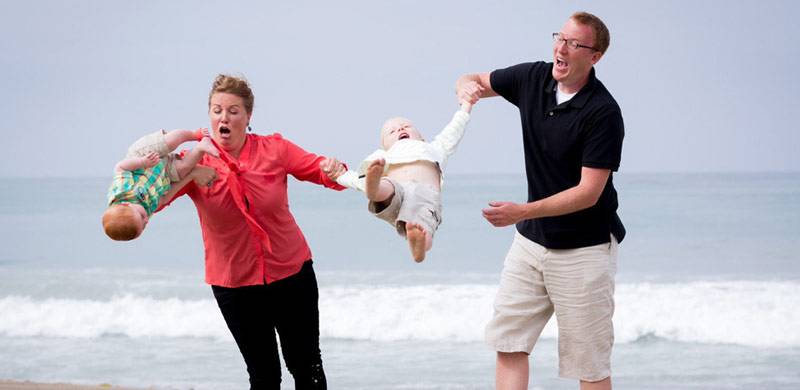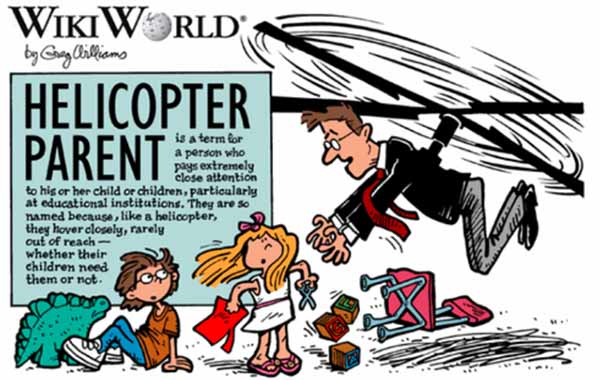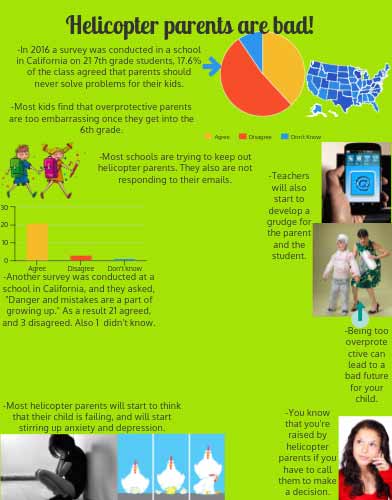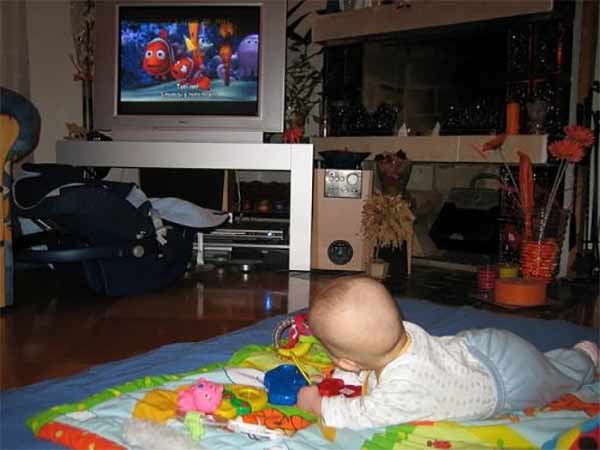
Fahad Saleem shares the all-important parenting tips for those who are clueless about where they went wrong with the child upbringing.
What did we do wrong? This is the question every parent in Pakistan sorrowfully asks themselves when confronted, disappointed or dejected by their kids.
What they didn’t realise from the start was that parenting is a lot more than just paying the school fee of your kid, buying them what they want or feeding them properly.
Depression. Anxiety. Crime. Antisocial traits. Aggression. All of these problems are directly linked to bad parenting.
According to a 2011 study conducted by the UK’s Department for Education, children who are exposed to bad parenting are two times more likely to misbehave.
What is Bad Parenting?
Here’s a revelation for starters: overprotective parenting (extremely common parenting problem in Pakistan) is directly linked to depression and anxiety in later life.
Wait, what? You thought taking extra care of your kid is a “good” thing.
There’s a reason they call parenting the hardest job in the world.
Being a parent asks for constant learning, self-correction, knowledge of psychology, sacrifice and true selflessness.
Ever wondered why Northern European countries consistently rank at the top of the World’s Happiness Index? It’s not because of economy or geopolitical reasons or location of these countries.
It’s because of the incessant focus on their parenting practices to unlock the potential of their future generations.
Government-sponsored parenting classes and training programs are becoming a norm in the West.
In Pakistan, how often do you hear anything remotely related to parenting or learning how to raise kids? It’s just about paying for school, ensuring safety, weekend park visits and fast food. We do nothing more than that. And yet we expect our kids to achieve their optimal potential.
Here’s how Pakistani parents are ruining their kids.
Overprotective Parenting

Overprotective parenting is an epidemic in Pakistan. In the garb of love and care, we are priming our kids for depression, anxiety and failures in life. A study published in the Journal of Affective Disorders concluded that overprotection, especially from mothers, is a major cause of mental disorders among children. Overprotective parents instill in their kids problems like low self-confidence and self-reliance, according to a 1997 study published by Vanderbilt University.

Yelling at Kids
You asked your kid to do something. They said no or delayed it a bit. You yell at them, and they’ll follow your “order” immediately. Easy, isn’t it? Nope, you just pushed your kid one step toward destructive mood problems and behavioural issues in life. A study published in Child Development found that yelling increases depressive symptoms in adolescents. Yelling at your children will also take a toll on their self-esteem and confidence. Yelling, dear Pakistani parents, makes you look weak, not authoritative or powerful. Grow up and stop yelling at your kids just because you are frustrated with your day.

Exposing Kids to Too Much TV For Selfish Reasons
Pakistani parents find an easy way out when their kids go noisy. Quickly turn on the TV, play some apparently harmless cartoons and let your kids spend hours without “disturbing” you from whatever “important” you are doing. This screen time, according to science, is a recipe of disaster for your children. Research shows that screen time, especially for kids under 2 years of age, directly decreases language development abilities. A study published in the Journal of Pediatrics in 2007 proved that watching TV negatively affects vocabulary and social participation among kids.

What did we do wrong? This is the question every parent in Pakistan sorrowfully asks themselves when confronted, disappointed or dejected by their kids.
What they didn’t realise from the start was that parenting is a lot more than just paying the school fee of your kid, buying them what they want or feeding them properly.
Depression. Anxiety. Crime. Antisocial traits. Aggression. All of these problems are directly linked to bad parenting.
According to a 2011 study conducted by the UK’s Department for Education, children who are exposed to bad parenting are two times more likely to misbehave.
What is Bad Parenting?
Here’s a revelation for starters: overprotective parenting (extremely common parenting problem in Pakistan) is directly linked to depression and anxiety in later life.
Wait, what? You thought taking extra care of your kid is a “good” thing.
There’s a reason they call parenting the hardest job in the world.
Being a parent asks for constant learning, self-correction, knowledge of psychology, sacrifice and true selflessness.
Ever wondered why Northern European countries consistently rank at the top of the World’s Happiness Index? It’s not because of economy or geopolitical reasons or location of these countries.
It’s because of the incessant focus on their parenting practices to unlock the potential of their future generations.
Government-sponsored parenting classes and training programs are becoming a norm in the West.
In Pakistan, how often do you hear anything remotely related to parenting or learning how to raise kids? It’s just about paying for school, ensuring safety, weekend park visits and fast food. We do nothing more than that. And yet we expect our kids to achieve their optimal potential.
Here’s how Pakistani parents are ruining their kids.
Overprotective Parenting

Overprotective parenting is an epidemic in Pakistan. In the garb of love and care, we are priming our kids for depression, anxiety and failures in life. A study published in the Journal of Affective Disorders concluded that overprotection, especially from mothers, is a major cause of mental disorders among children. Overprotective parents instill in their kids problems like low self-confidence and self-reliance, according to a 1997 study published by Vanderbilt University.

Yelling at Kids
You asked your kid to do something. They said no or delayed it a bit. You yell at them, and they’ll follow your “order” immediately. Easy, isn’t it? Nope, you just pushed your kid one step toward destructive mood problems and behavioural issues in life. A study published in Child Development found that yelling increases depressive symptoms in adolescents. Yelling at your children will also take a toll on their self-esteem and confidence. Yelling, dear Pakistani parents, makes you look weak, not authoritative or powerful. Grow up and stop yelling at your kids just because you are frustrated with your day.

Source: https://www.nytimes.com/2018/09/05/well/family/why-you-should-stop-yelling-at-your-kids.html
Exposing Kids to Too Much TV For Selfish Reasons
Pakistani parents find an easy way out when their kids go noisy. Quickly turn on the TV, play some apparently harmless cartoons and let your kids spend hours without “disturbing” you from whatever “important” you are doing. This screen time, according to science, is a recipe of disaster for your children. Research shows that screen time, especially for kids under 2 years of age, directly decreases language development abilities. A study published in the Journal of Pediatrics in 2007 proved that watching TV negatively affects vocabulary and social participation among kids.

